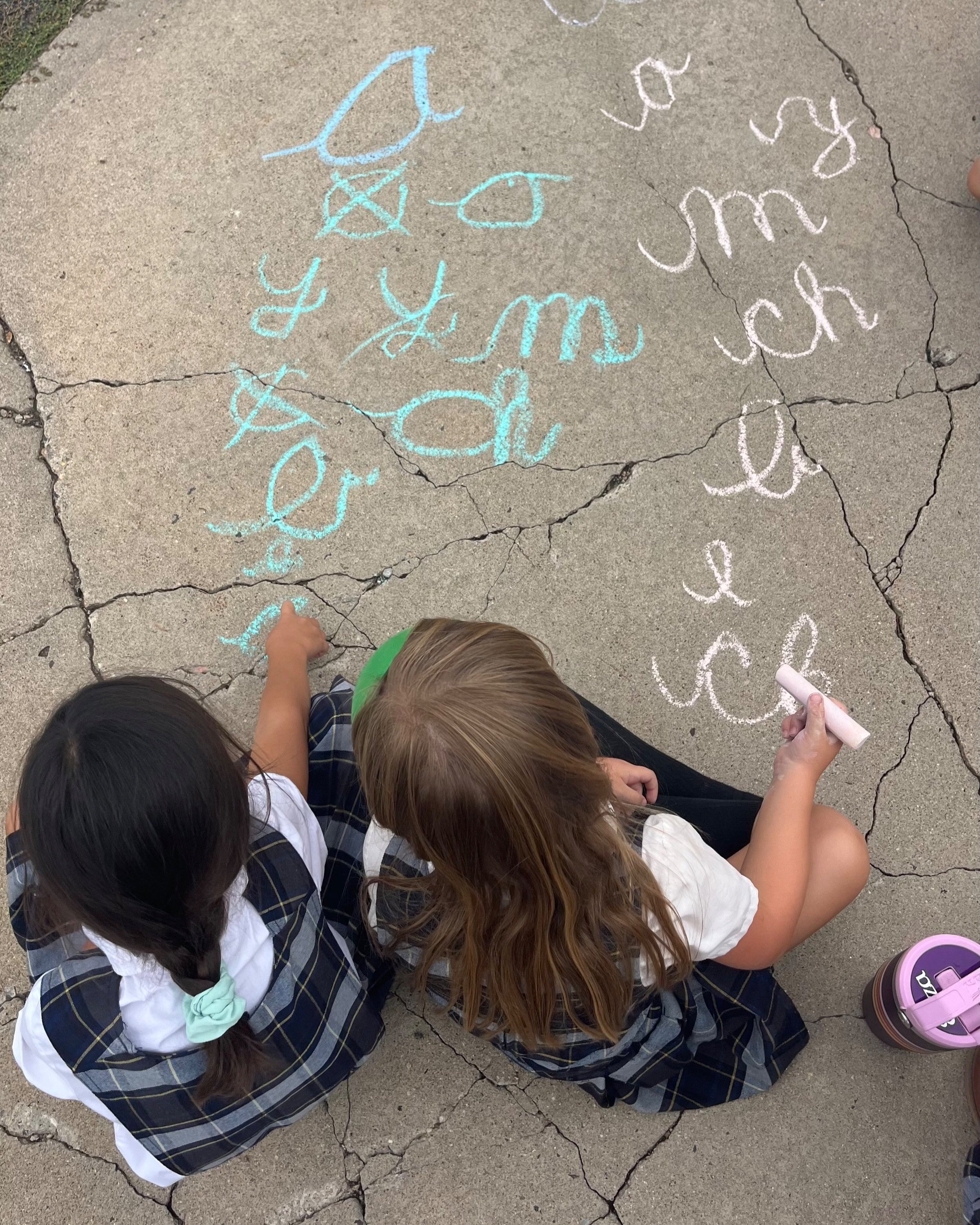The Grammar School
The ACA Grammar School exists to equip students with foundational knowledge in all academic subjects so they can use that knowledge for higher-order learning in Logic School.
In the grammar stage (grades K-5), students learn the fundamental rules and elements of each subject. Children at this age enjoy memorization, so in these early years of their education, they learn facts: poetry; Latin vocabulary; the stories of literature and history; math facts; descriptions and functions of the human body, plants, and animals; the rules of English grammar. In short, students are eagerly absorbing the grammar, or foundational knowledge, for the next stage of their education.
As the first stage of the Trivium (Latin for "where three roads or rivers meet"), the Grammar stage of learning aligns with young students' desire for concrete information. Students in grades K-5 learn foundational knowledge in every subject through memorization, songs, chants, jingles, and poems. Because young students are not yet able to think abstractly, the Grammar stage gives them the kind of information they like and seek: the "grammar" of every subject, the key information a child needs to later have facility with knowledge and use it well. For example, the grammar of geography is the names of the countries of Europe and where to place them on a map; later, in the Logic and Rhetoric phases of the Trivium, students explore why nations' borders exist as they do today. But first, students must know the names of these nations and where to find them. In another example, students must learn the basic operations in math and have facility with facts and foundational concepts before they move into algebra and geometry later in their academic careers.
In Grammar school, we teach that all truth is God's truth, and we regularly help students identify and name the nature and character of God as it is revealed in the world He gave us to learn and to serve.

OUR CURRICULUM
ACA READING SKILLS PROGRAM
Augustine Classical Academy offers additional reading support with Jenn Molen, our Reading Specialist, for students who qualify. Jenn is passionate about reading instruction and has received training in the Orton-Gillingham method of teaching reading, which has proven successful in helping a wide range of students, including those with learning differences, progress in their reading abilities. For those students who qualify, the reading support is strongly recommended, but not required, and is provided at no additional cost.
Overview:
Testing and Timeline: The DRA (Developmental Reading Assessment) will be administered to all ACA students during the first two weeks of September. Students who test below grade level on the DRA will also be given the San Diego Quick, DIBELS, and Oral Phonemic Awareness assessments to further identify areas of struggle and inform the selection process. Students will be selected for the program the end of September with a goal of beginning Reading Skills Program instruction the first week of October.
Student Selection: Students will be selected for the program based on need, with struggling early/beginning readers and students with a diagnosis of dyslexia or another learning difference prioritized. The program will be kept to 6-8 students total. This may be somewhat fluid, as selected students may graduate from the program and other students be accepted in their place.
Reading Skills Program Instruction: All program instruction will take place after school between 3:45 and 5:15, with youngest students scheduled immediately after school. Students or groups will meet twice a week for 30-45 minutes. All instruction will be done by Jenn Molen, utilizing an Orton-Gillingham based curriculum. Students will practice phonemic awareness, reading fluency, and reading comprehension skills. Additional components related to handwriting fluency and writing skills, which have been shown to improve reading fluency and comprehension, will also be incorporated.
Reading Skills Program Homework: Students in the reading program will receive homework following each lesson. A homework log, word list, reading passage, and other optional passages or activities will be sent home in a yellow folder and brought back each lesson day.
Communication: Jenn will communicate regularly with parents and classroom teachers, providing information regarding student progress and reading strategies to practice at home and in the classroom.













